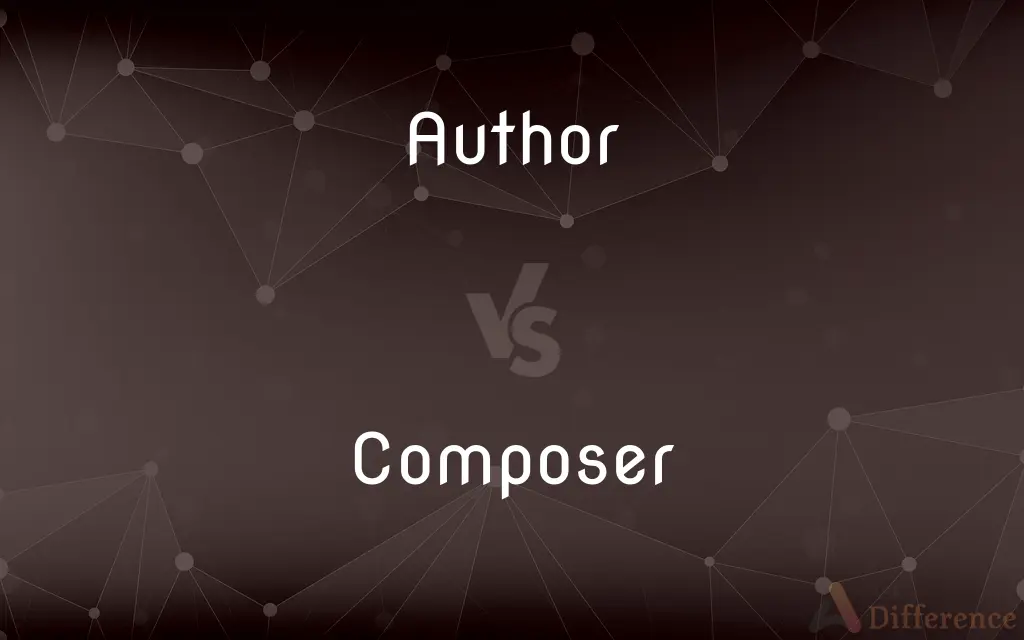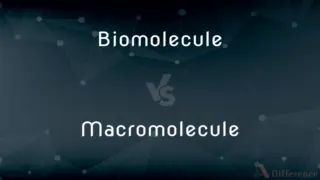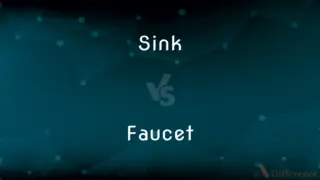Author vs. Composer — What's the Difference?
By Urooj Arif & Maham Liaqat — Updated on March 28, 2024
An author writes literary works, while a composer creates musical compositions.

Difference Between Author and Composer
Table of Contents
ADVERTISEMENT
Key Differences
An author is someone who engages in writing as a form of creative expression, producing various forms of literary art such as novels, essays, poetry, and short stories. The primary medium of an author is language, and their work often reflects personal ideas, historical contexts, or imaginative worlds. Whereas a composer is a musician who creates musical compositions, ranging from symphonies and operas to film scores and pop songs. Composers use musical notation to convey their ideas, focusing on melody, harmony, and rhythm to express emotions or tell stories through music.
Authors often aim to evoke emotions, provoke thought, or narrate stories through written text, exploring complex characters, intricate plots, and philosophical ideas. Their work is consumed through reading, which can be a solitary or shared experience. On the other hand, composers create works that are experienced through listening, often evoking an immediate emotional response or creating an ambiance. Music composition can involve solitary creation, but the performance and appreciation of the work typically involve collective experiences.
The process of creation differs significantly between authors and composers. Authors may rely on research, imagination, and linguistic skill to craft their narratives or arguments, using words as their primary tool. Composers, however, work with melodies, harmonies, and rhythms, employing instruments and sometimes voices to bring their musical ideas to life. While both may start with a concept or theme, their methods and outputs are distinct.
Collaboration can play different roles in the work of authors and composers. While writing can be a predominantly solitary activity, with some exceptions like co-authored books, composition often involves collaboration, especially in genres like opera or musical theater, where composers work with librettists, musicians, and sometimes choreographers.
Despite their differences, both authors and composers share the goal of communicating with an audience and evoking a range of responses through their art. Whether through the medium of language or music, both contribute significantly to cultural and artistic expression, each offering unique insights into the human experience.
ADVERTISEMENT
Comparison Chart
Medium
Language (written words)
Music (notations and sounds)
Output
Novels, essays, poetry, short stories
Symphonies, operas, songs, film scores
Purpose
To narrate stories, express ideas, evoke emotions
To evoke emotions, tell stories through music
Process
Research, writing, editing text
Creating melodies, harmonies, arranging instruments
Collaboration
Often solitary, but can co-author
Frequently collaborates with musicians, librettists
Consumption
Reading
Listening
Emphasis
Plot, character, philosophy
Melody, harmony, rhythm
Compare with Definitions
Author
Engages in writing books, articles, or essays.
As an author, she contributed regularly to leading science magazines.
Composer
Uses musical notation to convey artistic ideas.
Through intricate notations, the composer expressed a range of emotions.
Author
May work in various genres, from fiction to non-fiction.
The author received an award for his historical biographies.
Composer
Engages in creating melodies, harmonies, and rhythms.
The composer is known for blending classical harmonies with modern rhythms.
Author
Crafts narratives that explore themes and concepts.
The author’s latest work delves into themes of freedom and isolation.
Composer
Writes music for various ensembles and solo instruments.
The composer debuted a symphony that captivated the audience.
Author
Uses words to express ideas and stories.
The author's way with words brought the characters vividly to life.
Composer
May create music for films, theatre, or concerts.
The composer's film score added depth to the movie's emotional landscape.
Author
Creates literary works using written language.
The author published a novel exploring the complexities of human nature.
Composer
Works with musicians to bring compositions to life.
The composer collaborated with a renowned orchestra for the premiere of her latest piece.
Author
An author is the creator or originator of any written work such as a book or play, and is also considered a writer. More broadly defined, an author is "the person who originated or gave existence to anything" and whose authorship determines responsibility for what was created.
Composer
A composer (Latin compōnō; literally "one who puts together") is a person who writes music, especially classical music in any form, including vocal music (for a singer or choir), instrumental music, electronic music, and music which combines multiple forms. A composer may create music in any music genre, including, for example, classical music, musical theatre, blues, folk music, jazz, and popular music.
Author
The writer of a book, article, or other text.
Composer
One that composes, especially a person who composes music.
Author
One who practices writing as a profession.
Composer
One who composes; an author.
Author
One who writes or constructs an electronic document or system, such as a website.
Composer
Especially, one who composes music.
Author
An originator or creator, as of a theory or plan.
Composer
One who, or that which, quiets or calms.
Author
Author God.
Composer
One who composes; an author. Specifically, an author of a piece of music.
If the thoughts of such authors have nothing in them, they at least . . . show an honest industry and a good intention in the composer.
His [Mozart's] most brilliant and solid glory is founded upon his talents as a composer.
Author
To write or be the author of (a published text).
Composer
One who, or that which, quiets or calms; one who adjusts a difference.
Sweet composers of the pensive soul.
Author
To write or construct (an electronic document or system)
Authored the company's website.
Composer
Someone who composes music as a profession
Author
The originator or creator of a work, especially of a literary composition.
The copyright of any original writing belongs initially and properly to its author.
Have you read any Corinthian authors?
Author
Someone who writes books for a living.
Author
Principal.
Author
(obsolete) One's authority for something: an informant.
Author
To create a work as its author.
Author
The beginner, former, or first mover of anything; hence, the efficient cause of a thing; a creator; an originator.
Eternal King; thee, Author of all being.
Author
One who composes or writes a book; a composer, as distinguished from an editor, translator, or compiler.
The chief glory of every people arises from its authors.
Author
The editor of a periodical.
Author
An informant.
Author
To occasion; to originate.
Such an overthrow . . . I have authored.
Author
To tell; to say; to declare.
More of him I dare not author.
Author
Writes (books or stories or articles or the like) professionally (for pay)
Author
Someone who originates or causes or initiates something;
He was the generator of several complaints
Author
Be the author of;
She authored this play
Common Curiosities
How do authors and composers share their work?
Authors share their work through published texts, while composers share their music through performances and recordings.
How do authors and composers impact culture?
Both authors and composers significantly impact culture by contributing to the arts, influencing societal values, and reflecting the human experience through their works.
Can someone be both an author and a composer?
Yes, some individuals excel in both writing literary works and composing music, showcasing their versatility in artistic expression.
What does an author do?
An author writes and creates literary works, including fiction and non-fiction, using language to express ideas, tell stories, and evoke emotions.
Do authors and composers always work alone?
While writing and composing can be solitary activities, both fields also offer opportunities for collaboration, such as co-authoring or working with musicians and other artists.
What is a composer responsible for?
A composer is responsible for creating musical compositions, employing melodies, harmonies, and rhythms to express emotions and stories through music.
How has technology affected authors and composers?
Technology has expanded the tools available to both authors and composers, from word processing and research to music composition software, changing how they create and share their work.
Can the works of authors and composers be adapted?
Yes, literary works can be adapted into films, plays, or even songs, while musical compositions can be arranged for different ensembles or inspire literary creations.
How do education and training differ for authors and composers?
Authors might focus on literary studies, creative writing, and language, while composers often study music theory, composition, and performance.
What challenges do authors and composers face?
Both face the challenge of staying relevant and original in rapidly changing cultural landscapes, along with the practical aspects of finding audiences and achieving financial sustainability.
What skills are important for authors and composers?
Authors need strong writing and storytelling skills, while composers require musical talent, including an understanding of theory and instrumentation.
What distinguishes a successful author or composer?
Success can be defined by critical acclaim, popularity, or personal satisfaction, but it often involves a unique voice, meaningful content, and the ability to connect with audiences.
What role do publishers and record labels play?
Publishers help authors distribute their books to readers, whereas record labels assist composers and musicians in recording, distributing, and promoting their music.
How do historical contexts influence authors and composers?
Both are influenced by their cultural, social, and political environments, which can shape the themes, styles, and reception of their works.
How do authors and composers copyright their work?
Authors and composers protect their creations through copyright laws, ensuring they have exclusive rights to their work and can control how it's used and distributed.
Share Your Discovery

Previous Comparison
Biomolecule vs. Macromolecule
Next Comparison
Sink vs. FaucetAuthor Spotlight
Written by
Urooj ArifUrooj is a skilled content writer at Ask Difference, known for her exceptional ability to simplify complex topics into engaging and informative content. With a passion for research and a flair for clear, concise writing, she consistently delivers articles that resonate with our diverse audience.
Co-written by
Maham Liaqat













































